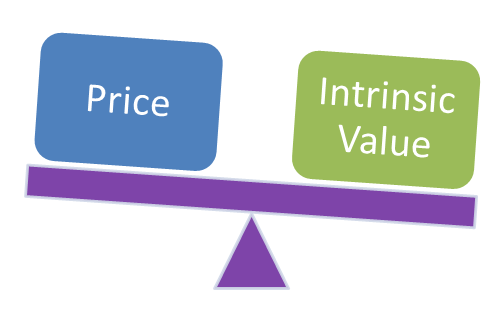From Drowning in Debt to Financial Freedom: The Surprising Power of Financial Planning
Are you drowning in debt and feeling helpless? Don’t despair – a recent study “The Effect of Financial Planning on Consumer Debt Management: The Role of Financial Literacy, Self-Efficacy, and Financial Motivation” by Edy Jumady, Syamsul Alam, Hasbiyadi Hasbiyadi and others has revealed that financial planning could be your lifeline. By understanding the key factors that influence effective debt management and implementing practical strategies, you can take control of your financial future and break free from the burden of debt.
In this blog article, we’ll explore the study’s fascinating findings, which highlight the critical roles of financial literacy, self-efficacy, and motivation in managing consumer debt. We’ll break down the conclusions and provide you with actionable steps to enhance your financial knowledge, boost your confidence, and stay motivated as you tackle your debt head-on.
Get ready to embark on a transformative journey towards financial freedom, armed with the insights and tools you need to make lasting, positive changes in your life. Whether you’re just starting to get a handle on your finances or looking for ways to optimise your debt management strategy, this article is for you.

Key Takeaways (TL;DR)
Objectives
The researchers wanted to learn more about how different things affect each other when it comes to managing money:
- They looked at how much people know about money (financial literacy)
- What people actually do with their money (financial behaviour)
- How well people can control their spending (self-control)
- How people handle their debts (debt management)
- And how happy and secure people feel about their money situation (financial well-being)
They also wanted to understand how learning more about money can change the way people take care of their personal finances every day.
By studying these connections, the researchers hoped to get a clearer picture of what helps people make good choices with their money and feel more in control of their financial lives.
Key Findings
This study looked at how different things work together when it comes to managing money and debt:
- It found that knowing a lot about money (financial literacy) is really important. It helps people make better choices and handle their debt better.
- When people feel confident about their money skills (high financial self-efficacy), they’re more likely to take positive steps with their finances. This leads to feeling better about their money situation overall (financial well-being).
- But when people have trouble controlling their spending (low self-control) or put things off (procrastination), it can make it harder for them to manage their debt well.
- The study also found that financial literacy goes hand-in-hand with being involved in financial markets, having more money left over, and being able to spend wisely, especially when times are tough.
- However, not everyone knows a lot about debt. In the U.S., only about one in three people really understand how interest adds up over time.
- The study showed that financial literacy directly leads to better financial well-being, but self-control doesn’t have the same direct effect.
- To help people feel more confident with money (financial self-efficacy), we need to look at things like their thoughts and feelings, their background, and their culture. Education, practice, community support, and overcoming fears are all important parts of this.
- Motivation, confidence, and knowledge are all key when it comes to managing debt and planning for the future. They all work together in complex ways to shape our money habits.
- This study gives valuable insights for anyone who teaches about money, like financial educators, advisors, and policymakers.
- There’s still a lot more to learn about how financial literacy, confidence, and motivation affect the way we handle money and plan for the future.
Methods
The researchers looked at the stories people told and tried to find common themes and ideas about how they handle money. This helped them understand what people were really thinking and feeling.
The study used a special approach called phenomenological research design. This means they had deep, open-ended chats with people and also looked at their financial plans. This helped them get a full picture of each person’s unique experiences.
The studies used different methods to explore how financial literacy (knowing about money), financial behaviour (what you do with money), self-control, debt management, and overall financial wellbeing are all connected. They read a lot of stories, sent out surveys, and analysed data to find patterns.
The study took a qualitative approach, which means they talked to people from Indonesia to hear their personal stories and thoughts about financial literacy, debt management, and feeling confident with money.
In this study, the researchers had an in-depth interview with someone who’s been really good at managing their debt. They wanted to learn from this person’s experiences and understand more about what motivates them, how confident they feel, and what they know about money.
So, while the studies used different strategies, they all had the same big goal: to understand people’s real-life experiences and feelings about money. By diving deep into individual stories, they were able to find important themes and lessons that can help us all get better at managing our finances.
Results
This study discovered that three things are super important when it comes to managing debt and planning your money:
- Knowing a lot about money (financial literacy)
- Feeling confident in your ability to handle money (self-efficacy)
- Having a strong desire to do well with your money (financial motivation)
When people have these three things, they’re much better at making smart choices about their debt and overall finances.
The study’s findings show that we need to teach people about more than just the facts and figures of money management. We also need to pay attention to the thoughts, feelings, and attitudes that shape the way people deal with money.
By understanding all the different pieces of the puzzle – like how much people know, how they feel, and what motivates them – we can get a clearer picture of what really matters when it comes to handling debt and planning for a strong financial future.
One key takeaway is that financial literacy, or knowing a lot about money, has a direct and positive impact on financial well-being. But interestingly, self-control doesn’t seem to have the same straight line to financial happiness.
The study also found that to help people feel more confident with money, we need to think beyond just teaching them the basics. We need to tackle the mental roadblocks that can hold people back, like being afraid to fail, avoiding risks, or putting things off.
When people have the right mix of financial know-how, confidence, and motivation, they’re in a much better position to take control of their debt and build a stable financial life. And that’s really what it’s all about – empowering people to make the most of their money and reach their goals.
Limitations
This study knows that when you’re looking into people’s personal money stuff, like debt, it can be tricky. It’s a sensitive topic, and the researchers have to be extra careful to handle everything ethically.
The studies also admit that their findings might have some limitations. For example, financial literacy (how much people know about money) might be connected to other factors that aren’t being measured.
One limitation of this study is that it uses qualitative research, which means it’s based on people’s personal experiences and opinions. This type of research is great for understanding individual stories, but it might not apply to everyone in the same way. Plus, the study focused on people in Indonesia, so we can’t assume that people in other countries or cultures would have the same experiences.
The study didn’t really talk about its own limitations, but it’s important to keep in mind that it only looked at two people’s stories. That’s a pretty small sample size, so we can’t say for sure that their experiences represent what most people go through.
Another limitation is that the study only looked at one case study. To really understand how financial education affects people’s motivation, confidence, and knowledge over time, we’d need to do more research that follows people for a longer period.
So, while this study gives us some interesting insights, it’s important to remember that there’s still a lot more to learn. We need to keep exploring these ideas in different ways and with different groups of people to get a full picture of how money management works in real life.
Conclusion
In the end, this study shows that to be good with money and handle debt well, you need a few key things:
- Knowing a lot about money (financial literacy)
- Feeling confident in your ability to manage money (self-efficacy)
- Having a strong desire to do well with your finances (financial motivation)
The study found that it’s important to make financial education fit each person’s unique needs and situation. This helps people learn more about money, feel more confident, and stay motivated. When you have all these things, you’re better at dealing with debt and feeling good about your money situation overall.
The study also says that to really help people manage their debt, we need to do more than just teach them about money. We also need to give them mental support and find ways to keep them motivated. It’s a big puzzle with a lot of pieces.
One of the biggest lessons is that knowing a lot about money makes a huge difference in how people handle their finances and how well they do. When you understand how debt works and how to make smart money choices, you’re much better prepared to take control of your financial life.
In short, this study shows that if we want to help people get better at managing debt and planning for their financial futures, we need to focus on building their knowledge, confidence, and motivation. It’s not just about giving them facts and figures – it’s about helping them develop a positive relationship with money that works for their unique needs and goals.




